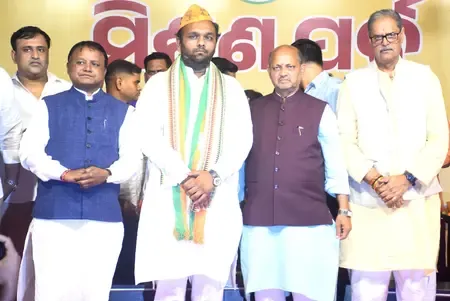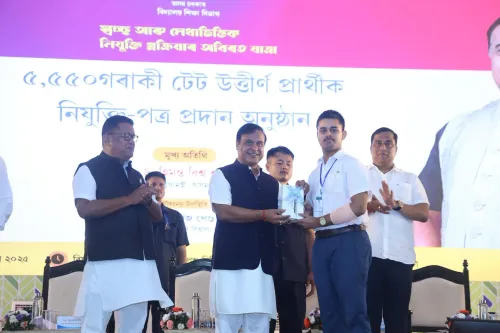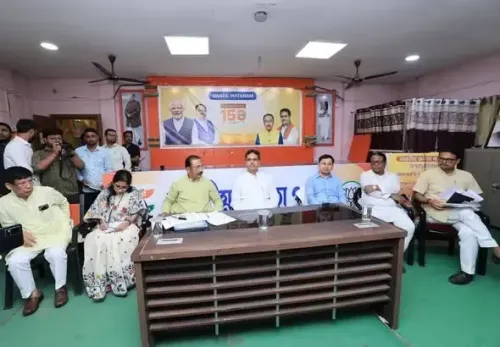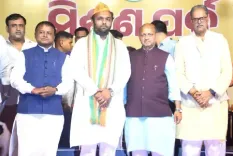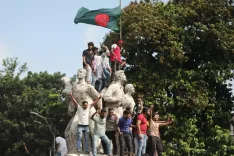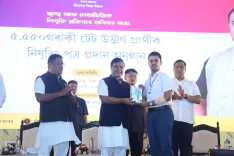Is Hindu Dharma Registered? Mohan Bhagwat Explains RSS Legal Status
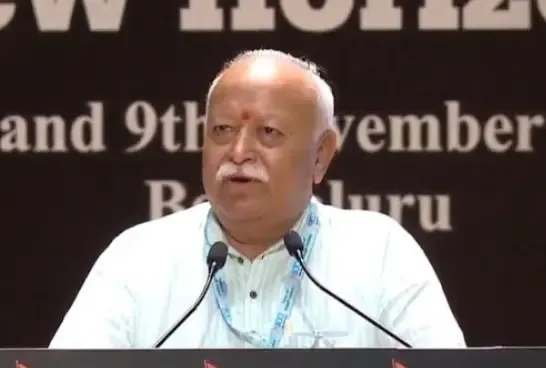
Synopsis
Key Takeaways
- Mohan Bhagwat asserts that Hindu Dharma and the RSS exist without formal registration.
- The organization is recognized legally as a collective of individuals.
- RSS has faced and overcome multiple bans, affirming its legal status.
- The vision for the future emphasizes uniting and organizing the Hindu community.
- RSS operates within the constitutional framework of India.
Bengaluru, Nov 9 (NationPress) The chief of RSS, Mohan Bhagwat, addressed queries regarding the legal status of the Rashtriya Swayamsevak Sangh, clarifying whether its unregistered status is a matter of choice or a strategy to evade legal responsibilities. He emphasized that many entities operate without formal registration, and even Hindu Dharma lacks official registration.
This declaration was made during a Q&A session on the second day of the event titled “100 Years of Sangh Journey: New Horizons” in Bengaluru on Sunday.
Bhagwat remarked, “This question has been posed repeatedly. Those who seek to challenge us continue to do so, and we must remain responsive. It is not the first time this topic has surfaced.”
“The Sangh was founded in 1925. Would you expect us to have registered with the British authorities, the same government against which our Sarsanghchalak was in opposition?” he questioned.
He further explained that after independence, Indian laws do not mandate registration. “Unregistered groups of individuals are also recognized legally, and we fit into this category,” he noted.
Bhagwat elaborated, “The Income Tax Department once demanded we pay taxes, leading to legal proceedings. The court ruled in our favor, stating we are a collective of individuals, and our 'Guru Dakshina (donations)' are exempt from income tax.”
“We faced bans on three occasions, which signifies government recognition of our existence. If we were non-existent, who were they banning? The courts have consistently overturned these bans, reaffirming the legality of the RSS,” he added.
“In both the Assembly and Parliament, inquiries are raised; statements are made regarding the RSS, both supportive and critical. This reflects our recognition. Legally and factually, we are indeed an organization. We adhere to the Constitution, hence registration is unnecessary,” Bhagwat clarified.
“Many entities exist without registration, and even Hindu Dharma is unregistered,” he reiterated.
When asked about the RSS’s vision for the next two decades, Bhagwat stated, “We aim to unite and organize the entire Hindu community, instilling quality and discipline to foster a prosperous and resilient Bharat—a nation capable of sharing the essence of Dharma globally, contributing to happiness, bliss, and peace.”
“This mission requires the collective effort of society at large. We are preparing the Hindu community for this goal. This is our singular vision; once achieved, we will have no further pursuits,” he concluded.
“Our goal is to organize the entire Hindu society, and we will do whatever it takes to achieve this. Our mission is to cultivate a well-organized and robust Hindu community,” Bhagwat asserted.

